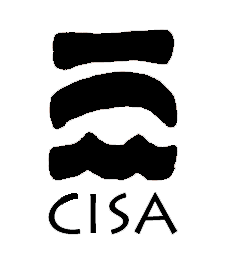GRASSROOTS INNOVATIONS FROM YOUTH
Mapping Zero Waste challenges with Middle Schools students in Brazil and Canada
- Available online in Detritus - Volume 27 - June 2024
- Pages IV-VIII
Released under All rights reserved
Copyright: © 2024 CISA Publisher
References
Alfaia, R.G.D.S.M., Costa, A.M., Campos, J.C. (2017). Municipal solid waste in Brazil: A review. Waste Management & Research, 35(12), 1195-1209
Carenzo, S., Juarez, P., & Becerra, L. (2022). Is there room for a circular economy “from below”? Reflections on privatisation and commoning of circular waste loops in Argentina. Local Environment, 1-17
City of Victoria (n.d.) Zero Waste Victoria. See: https://www.victoria.ca/home-property/waste-collection/waste-reduction
Driskell, D. (2017) Creating better cities with children and youth: A manual for participation. Routledge
Forlani, G. Njie, L. (2022) In COVID-era trash surge, waste management ingenuity, circularity, and investments are key. World Bank Blogs. Available at: https://blogs.worldbank.org/sustainablecities/covid-era-trash-surge-waste-management-ingenuity-circularity-and-investments-are
Gutberlet, J. (2016) Ways Out of the Waste Dilemma: Transforming Communities in the Global South. In: “A Future without Waste? Zero Waste in Theory and Practice,” Christof Mauch (Ed.) RCC Perspectives: Transformations in Environment & Society, 3: 55–68
Kallio, K. P., & Häkli, J. (2013) Children and Young People’s Politics in Everyday Life. Space and Polity, 2013, 17:1, 1-16,
DOI 10.1080/13562576.2013.780710
Kallio, K. P, Häkli, J., & Bäcklund, P. (2015) Lived citizenship as the locus of political agency in participatory policy, Citizenship Studies,19:1, 101-119,
DOI 10.1080/13621025.2014.982447
Kania, I., Alamanda, D. T., Pundenswari, P., & Ramdhani, A. (2020). Waste management by Garut youth movement, Indonesia. Test Engineering and Management, 82(3738), 3738-3745
Kraftl, P., Perrella Balastieri, J. A., Marques Camps, A. E., Coles, B., Hadfield-Hill, S., Horton, J., Valladers Soares, P., Nogueira Vilanova, M. R., Walker, C. & Zara, C. (2018) ‘(Re)Thinking (re)connection: young people, ‘natures’ and the water-energy-food nexus in São Paulo state, Brazil’, Transactions of the Institute of British Geographers.
DOI 10.1111/tran.12277
Marchezini, V. & Trajber, R. (2016) Youth-Based Learning in Disaster Risk Reduction Education: Barriers and Bridges to Promote Resilience. In Responses to Disasters and Climate Change, Understanding Vulnerability and Fostering Resilience, Companion, M., & Chaiken, M. S. (Eds.), Chaiken, CRC Press, pp. 27–36
Naldi, A. (2023). Interaction analysis of youth participation with the household waste management system regarding the existence of local waste treatment facilities. Interaction, Community Engagement, and Social Environment, 1(1)
Owusu-Sekyere, E., Attakora-Amaniampong, E., & Aboagye, D. (2016). Wealth, health, and inequality: households exposure to environmental hazards. Geography Journal, 2016(1), 6231020
Pacheco, E.B.A.V., Ronchetti, L.M., Masanet, E. (2012). An overview of plastic recycling in Rio de Janeiro. Resources, Conservation and Recycling, 60, 140-146,
DOI 10.1016/j.resconrec.2011.12.010
Perera, A. (2016) Fiji towards zero waste: Effectiveness of empowering children and youth of Fiji Islands for integrated waste management. Journal of Solid Waste Technology & Management, 42(1)
Pulubuhu, D. A. T., & Alhaqqi, M. S. (2019) Planned behaviour theory for the science agency: the role of youth for sustainable waste management. In: IOP Conference Series: Earth and Environmental Science (Vol. 343, No. 1, p. 012101). IOP Publishing
Tamminen, T. & Lobin, P. (2022). The Zero Waste City. In: The Climate City, 251-266.
DOI 10.1002/9781119746294.ch15
Trajber, R., Walker, C., Marchezini, V., Kraftl, P., Olivato, D., Hadfield-Hill, S., Zara, C., & Fernandes Monteiro, S. (2019) Promoting climate change transformation with young people in Brazil: participatory action research through a looping approach. Action Research, 17(1), 87-107.
DOI 10.1177/1476750319829202
Walker, C. (2019) Nexus thinking and the geographies of children, youth and families: towards an integrated research agenda, Children’s Geographies, 18(3), 351-363
DOI 10.1080/14733285.2019.1642449\
Zaman, A. (2022). Zero-Waste: A New Sustainability Paradigm for Addressing the Global Waste Problem. In: The Vision Zero Handbook: Theory, Technology and Management for a Zero Casualty Policy (pp. 1-24). Cham: Springer International Publishing



